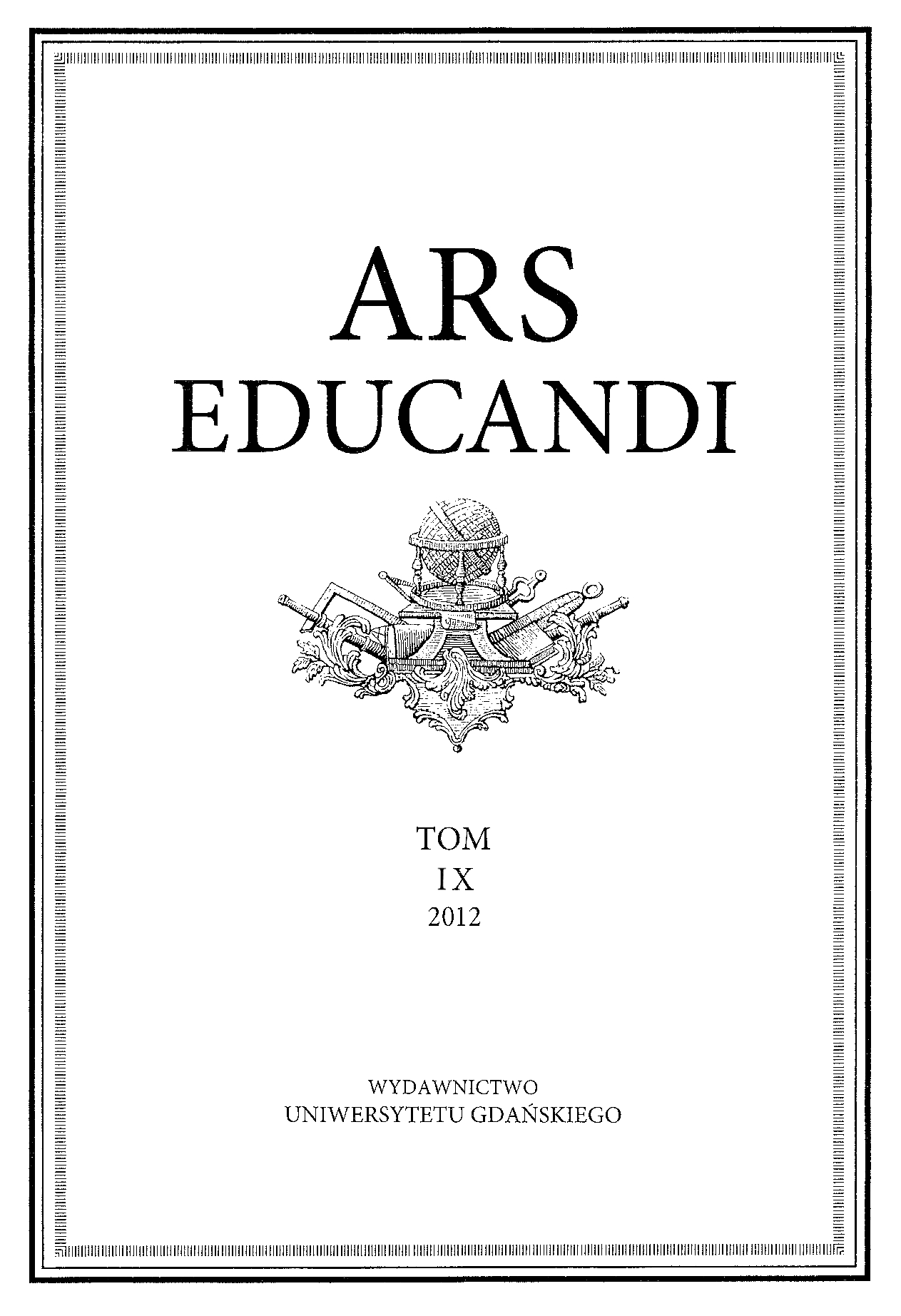Critical Pedagogy and Engaged Research: Ideology, Interests and Naivety
DOI:
https://doi.org/10.26881/ae.2012.09.04Keywords:
engagement, pedagogy, research, naivetyAbstract
The article deals with the problem of engagement in social research. Although this problem seems to have been solved (Aronowitz, Giroux 1991; Denzin, Lincoln 2009, 2010; Fairclough, Wodak 2007; Rogers 2011), it is far from obvious in Polish conditions, especially among quantitative researchers and, more importantly, among qualitative researchers who are trying to establish a certain neutral, ideology-free and transcendent point of view. Thus the most important thing is to deconstruct ideologically-based critiques of ideology parallel to the apotheosis of the social neutrality of the social sciences, especially educational theory.
Critical pedagogy’s ethical orientation in the area of social action as well as in the area of research procedures is based on the theory of ideology and interests (Aronowitz, Giroux 1991; Marx, Engels 1973; Habermas 1973). Awareness of necessary ideological involvement, however, is partly due to the postmodern awareness of the arbitrary imposition of meanings, which is the main problem for established emancipatory strategies (Laclau 2005). The author considers the discussion on the notion of ideology between Horkheimer and Mannheim to be a “prototype” of the latest dispute between Žižek and Laclau. In keeping with the distinction developed by Aronowitz and Giroux (1991), it is a problem of progressive and reactionary postmodernism.
Finally, the naive neutral point of view is faced with questions posed by Freire (2000) – in favour of what and whom do you study? Against what and whom do you study? Attempting to establish some kind of neutrality in social research which will not be an instrument of petrifying social relations, the author supports the concept of naivety as a technical skill rather than as a serious devotion to the positivist vision of “objective” empirical procedures.

English translation: Anna Moroz-Darska
Modernisation of the journal's operations and translation into the English language of articles published in Ars Educandi in 2012-2017 were financed with funds from the Ministry of Science and Higher Education as a part of the task Science Promotion Activity (pl. DUN).
The task ‘The implementation of the editorial module on the platform of Uniwersyteckie Czasopisma Naukowe – a system facilitating the editing and management of the academic journal Ars Educandi‘ was financed as a part of contract 661/P-DUN/2018 of 12.06.2018 from funds of the Ministry of Science and Higher Education designated for the promotion of science.
The task ‘The creation of a modern online version of the academic journal Ars Educandi through the implementation of the publication module on the platform of Uniwersyteckie Czasopisma Naukowe and the handling of international indexing databases’ was financed as a part of contract 661/P-DUN/2018 of 12.06.2018 from funds of the Ministry of Science and Higher Education designated for the promotion of science.
The task ‘Preparation of the English language version of the last 6 annual issues (2012-2017) of the academic journal Ars Educandi and their publication online’ was financed as a part of contract 661/P-DUN/2018 of 12.06.2018 from funds of the Ministry of Science and Higher Education designated for the promotion of science.

 Academic Scientific Journals
Academic Scientific Journals




